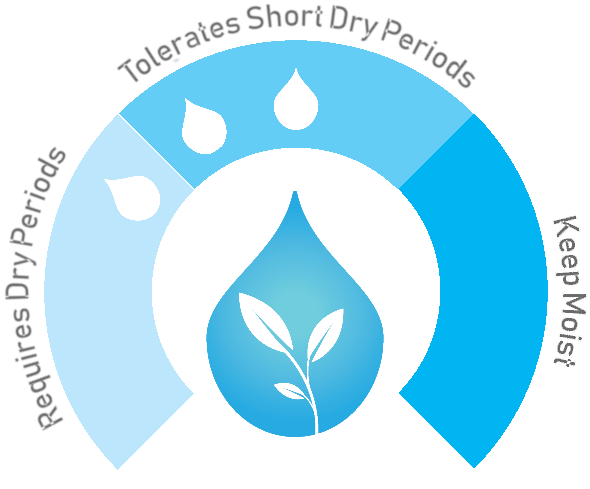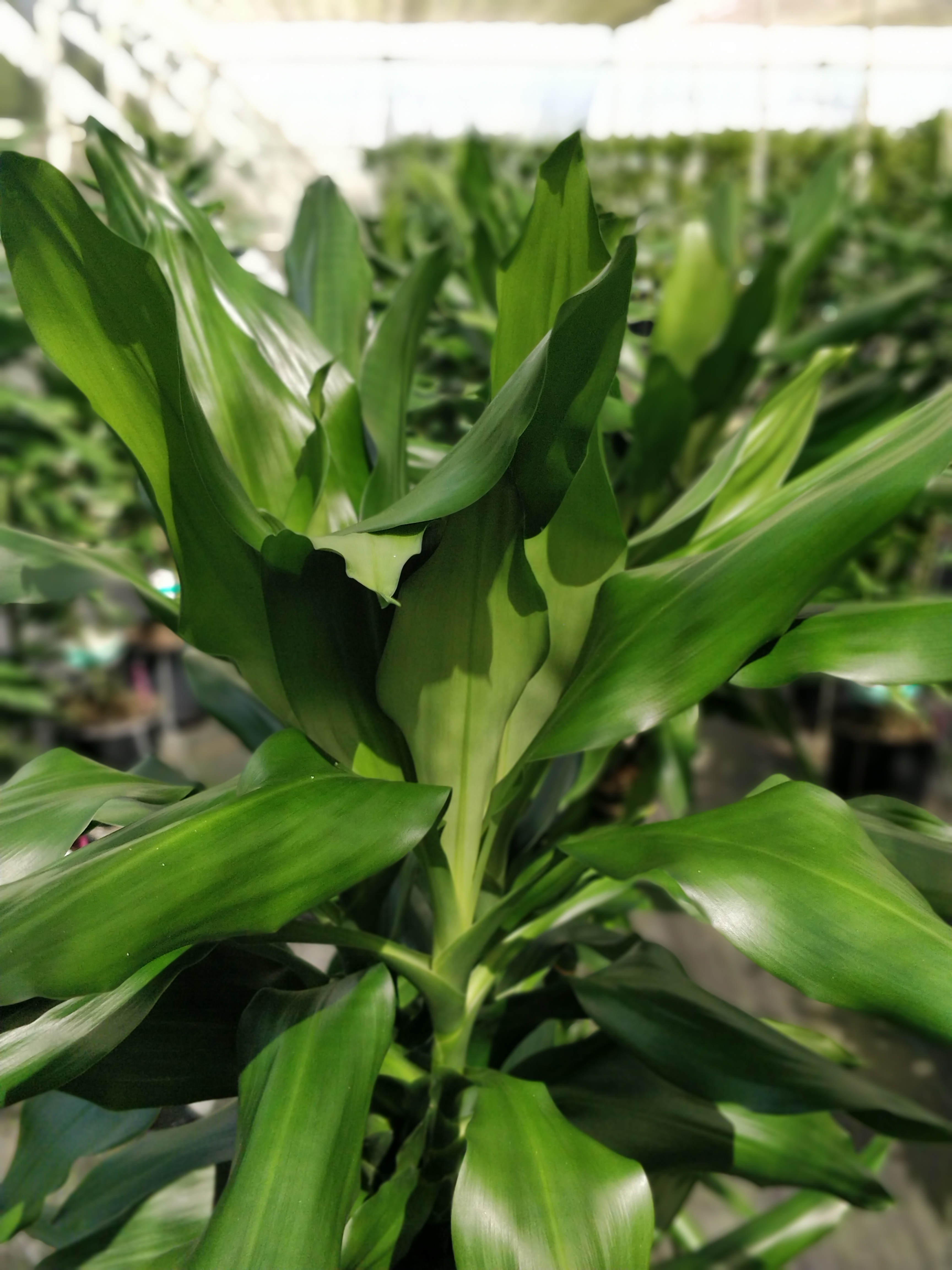
The steudneri is a very hardy species of Dracaena. This variety, Janet Lind, has attractive dark green tropical foliage. As a houseplant the Janet Lind will do exceptionally well in most places. Farm Life grows the Dracaena steudneri 'Janet Lind' in a 10 inch pot at 5 feet and in a 14 inch pot at around 6 feet.
The meters below indicate a range of light and tolerance to drought. The ranges are indicated by the little light bulbs and the small water drops.
Light Instructions

Water Instructions


Mealybugs can be removed with a systemic insecticide drench and hand cleaning. Thorough hand cleaning is difficult since the mealy bugs will be deep inside the emerging new foliage. Check under leaves close to where the leaves attach to the stem. Gently separate the new leaves emerging in the center of a growing head and look around in there too. Here are some pictures of what to look for. If pesticides are not an option, try horticultural oil directly sprayed onto the insects. A second and third treatment, if using oils, will be necessary. Space out the sprays at 1 week intervals to break up the mealybug life cycle. Only when mealybug pressure is extreme in the nursery have a few plants been observed with the insects. They are definitely in a different category than mealybug prone tropical plants like Dracaena marginata and Dracaena reflexa. In general, older plants have a larger problem with mealybugs than younger plants which may make the mealybug pressure for installed interior plants greater than what we experience in the nursery. Be on the lookout for any white residue around the areas described above for early indicators that a problem is starting.
The steudneri species of housplant seems to be a little tougher than many other Dracaenas. Most important, the root system is more tolerant of different soil types and saturation levels than most other Dracaenas fragrans (Mass Cane) or Dracaena deremensis (Janet Craig) I have grown. Loss of roots on a Dracaena will cause intervienal chlorosis, tip burn and a general dull appearance. Many of these difficult problems are avoided with the steudneri. They can still be maintained indoors on the dry side to be safe, but there is more forgiveness for over watering with this plant. Fertilizer should be very light to avoid high salts which will also cause tip burning. If the plant looks healthy but light in color and the roots look good increase the fertilizer a little bit. A very low dose of a slow release fertilizer, as opposed to a liquid fertilizer, should extend the nice color of the janet lind for a long time past its installation date and decouples the fertilizer from the water schedule.
Other Links:
Dracaena steudneri 'Cintho'
Dracaena steudneri 'Janet Lind'
Dracaena steudneri 'Moonlight'
